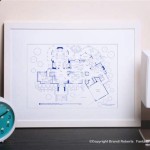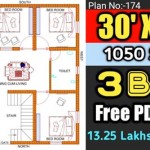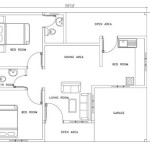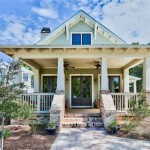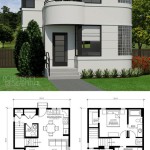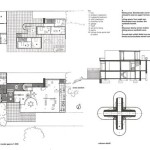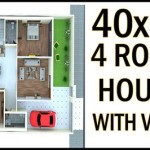German Shepherd Dog House Plans: Providing a Safe and Comfortable Haven
German Shepherd Dogs are intelligent, loyal, and active companions, renowned for their unwavering dedication and protective instincts. As responsible dog owners, it is crucial to provide them with a comfortable and secure space to rest, play, and retreat from the elements. This article delves into the essential considerations when designing and constructing a German Shepherd dog house, ensuring it meets their specific needs and provides an ideal shelter.
Size and Dimensions
The first critical aspect of designing a German Shepherd dog house is determining the appropriate size. A spacious and comfortable shelter is essential for a dog of this breed, allowing them to stretch out and move freely. As a general guideline, the dog house should be at least twice the length and width of the dog when it is lying down. This provides ample space for the German Shepherd to stand, turn around, and lie in a relaxed position.
For a large German Shepherd, a dog house measuring approximately 4 feet in length, 3 feet in width, and 3 feet in height would be suitable. However, it's always advisable to measure your dog's length, width, and height to ensure the dog house is tailored to their individual size and build.
Material and Construction
The material used for the construction of a German Shepherd dog house plays a crucial role in its durability, insulation, and overall functionality. Several materials can be utilized, each offering distinct advantages and disadvantages.
Wood
Wood is a popular choice for dog houses due to its affordability, ease of workability, and versatility. Cedar or redwood are excellent choices for their natural resistance to decay and insects. However, wood requires regular maintenance, including painting or staining to prevent weathering and protect against moisture.
Plastic
Plastic dog houses are lightweight, durable, and often water-resistant. They are generally more affordable than wooden alternatives and require minimal maintenance. However, plastic can become brittle in extreme temperatures and may not provide the same level of insulation as wood.
Metal
Metal dog houses offer superior durability and weather resistance but can be more expensive than wood or plastic. Steel or aluminum are popular choices for their strength and longevity. However, metal can become extremely hot in direct sunlight, requiring additional insulation or shading to ensure the dog's comfort.
Features and Design
Beyond the basic structure, several additional features can enhance the comfort and safety of a German Shepherd dog house. These features include:
Insulation
Insulation is vital for maintaining a comfortable temperature inside the dog house, particularly during extreme weather conditions. Insulation can be achieved using materials like foam board, fiberglass batts, or even recycled newspapers. Proper insulation will help keep the dog house warm in winter and cool in summer.
Ventilation
Adequate ventilation is essential to prevent moisture buildup and maintain air circulation inside the dog house. It can be achieved through vents on the roof or sides, or by using a raised floor with a screened bottom. Proper ventilation will help prevent mold and mildew growth and ensure the dog house remains fresh and healthy.
Raised Floor
A raised floor is beneficial for elevating the dog house off the ground, improving drainage and preventing moisture from accumulating underneath. It also provides a barrier against cold ground temperatures, especially during winter months. The raised floor can be constructed using wood slats or concrete blocks.
Roof overhang
A roof overhang will shield the dog house entrance from rain and snow, keeping the interior dry and preventing the dog from getting wet. The overhang should extend at least 12 inches beyond the entrance to provide adequate protection.
Door
The door of the German Shepherd dog house should be large enough for the dog to enter and exit easily, while also being secure to prevent drafts and unwanted intruders. A secure door with a latch or hook will help protect your dog from the elements and provide a sense of security.
Placement and Positioning
The placement and positioning of the German Shepherd dog house are critical for its functionality and the dog's well-being. The ideal location should be:
Sheltered from the elements
The dog house should be situated in a sheltered location, protected from direct sunlight, rain, and wind. A covered area or a location near a building or tall trees can provide adequate shelter.
Level ground
Placing the dog house on level ground is vital for stability and drainage. A slight incline can help direct water away from the entrance, preventing it from accumulating inside the dog house.
Accessible to the dog
The dog house should be easily accessible to the dog, with a clear path leading to and from the entrance. It should also be positioned in a location where the dog feels comfortable and safe.
Away from potential hazards
The dog house should be placed away from potential hazards such as poisonous plants, toxic chemicals, or areas with heavy pedestrian traffic. It is best to avoid placing the dog house near busy roads or areas where there are lots of loud noises.

German Shepherd Dog House Plans Fresh Steps To Build An Insulated For Pit Bulls Labrad Casas De Cachorros Ao Ar Livre Cão Diy Casa Cachorro Grande

8 Diy Dog House Ideas For Crafty Pas

Dog House Plans Police Houses

Reader Project How To Build The Ultimate Diy Dog House Family Handyman

Imageaholic Info Outdoor Dog House Plans Diy

How To Build Paint A Doghouse True Value

Diy Wooden Dog House Plans

Reader Project How To Build The Ultimate Diy Dog House Family Handyman
:strip_icc()/Beautiful-Pallet-Dog-House-with-Veranda-1-5a202f90494ec90037893a82.jpg?strip=all)
14 Free Diy Dog House Plans Anyone Can Build

Dog House Design Idea And Dimensions Engineering Discoveries

